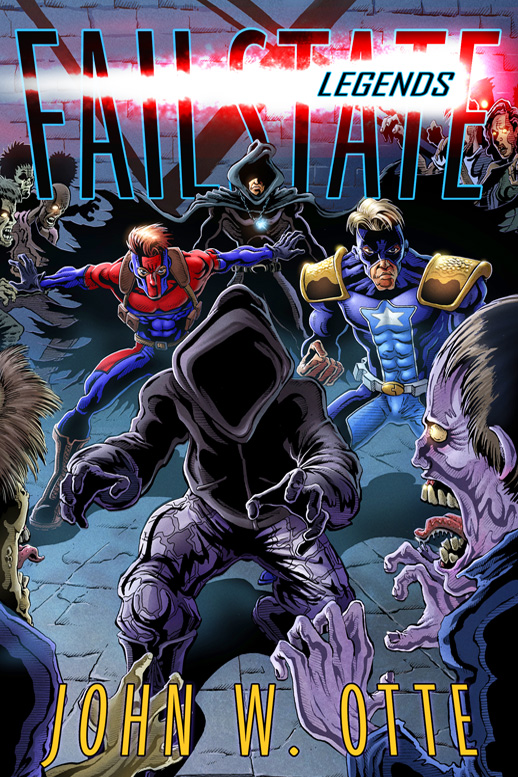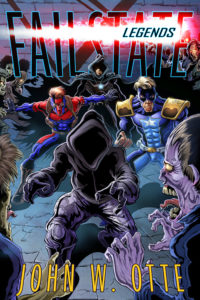 Today we continue our series on Magic in the Story with a form of so-called âmagicâ I believe many are confused about. This post, entitled âWritten in the Starsâ is an exploration of the difference between Astrology and Biblical Star-Reading (the search for meaning in the stars). As with all the other posts thus far, we will use the Narnia books as an example of stargazing since it fits our âfantasy fictionâ category and is widely accepted and sold in the Christian marketplace.
Today we continue our series on Magic in the Story with a form of so-called âmagicâ I believe many are confused about. This post, entitled âWritten in the Starsâ is an exploration of the difference between Astrology and Biblical Star-Reading (the search for meaning in the stars). As with all the other posts thus far, we will use the Narnia books as an example of stargazing since it fits our âfantasy fictionâ category and is widely accepted and sold in the Christian marketplace.
I hope, after reading this post, you will see that when given its proper place the search for meaning in the stars is not something to fret about (especially in fantasy fiction), that the Bible encourages us to do it and that doing so is, in fact, God-honoring.
(Enter Collective GASP Here!)
Before we dive in completely, Iâd like to encourage you to check out the previous posts in this series if you havenât. It may provide a bit of reference from whence we came.
Part 1: Whatâs the Big Deal  <week one>
Part 2: The Two Faces of Magic <last week>
Part 3: Written in the Stars <ââ YOU ARE HERE
When it comes to Narnia, the study of meaning in the stars (or astrology, if you prefer to use a single word) is, perhaps, one of the foundational elements that link all seven novels in the series together. Lewis was, himself, an avid astronomer. He had a telescope on the balcony of his bedroom and he often visited the Oxford observatory. But when it came to astrology, Lewis had been long fascinated with the subject of the stars and their meanings. He admitted that ââŠand who knows, perhaps in this [astrology] as in so many things the ancients knew more than we.â
Some have even convincingly speculate that the Narnia series is, in fact, secretly based on the seven planets of medieval astrology.
Lewisâ controversial dabbling in what some call âastrologyâ has been scrutinized over the years. In fact, many simply hear the word and toss it right out with magic as if both are a forbidden poison that will drag their authors and readers to hell in a hurry.
But astrology is by no means a definitive term. There is much to consider and scrutinize before we pass judgement on the books. I also found it intriguing to discover that Lewis himself was conflicted on the word as well.
So, What Do We Mean By Astrology?
Letâs start by defining the word âastrologyâ (since that is the hot word that concerns us most of all). As I prepared this post, I found it was not as easy a task to do as I thought it might be. In its broadest sense, astrology simply means the âsearch for meaning in the starsâ which I contend is a Biblical truth as well and will show you soon. In medieval times the word was synonymous with astronomy (which none that I know are offended by).
In fact, Merium-Websterâs first definition is simply âAstronomyâ, followed by a second definition that claims it to be âthe divination of the supposed influences of the stars and planets on human affairs and terrestrial events by their positions and aspectsâ. Iâm not sure about you but there seems to be quite a wide range of interpretations that can be explored between the two definitions. That is to say, simply saying âastrologyâ does not have as definite a meaning as one might first think.
To borrow a bit from last weekâs post letâs assume there are two faces to astrology, just as there are two faces to magic. Weâll call these two âDeep Astrologyâ and âDark Astrologyâ. Letâs agree to define âDeep Astrologyâ as the search for signs and wonders in the stars which act as heralds of coming events as ordained by the deep and all powerful Creator King. And weâll define âDark Astrologyâ as the worship of the stars as supernatural âinfluencersâ over the daily acts of men.
Fair enough?
Okay. If youâre still not convinced, I beg you to stick with me. I think I can win you over with Biblical truth on the matter.
Written in the Stars (Deep Astrology)
If you have never had the pleasure of watching the film âThe Star of Bethlehemâ, Iâd invite you to do so at your earliest opportunity. It was this film that opened my eyes to the truth of Scripture about the nature of the stars and their purpose. Iâll be borrowing some of the points here from itâs research to help us in our own unraveling of star meaning.
Why did God create the stars in the first place?
Genesis 1:14 says âAnd God said, âLet there be lights in the expanse of the heavens to separate the day from the night. And let them be for signs and for seasons, and for days and yearsâŠâ
Job 9:9 declares that God is the creator of the constellations: âHe is the Maker of the Bear [Ursa Major] and Orion, the Pleiades and the constellations of the south.â
Psalm 19:1-4 says that the stars communicate to us, ââŠThe heavens declare the glory of God; the skies proclaim the work of his hands. 2 Day after day they pour forth speech; night after night they display knowledge. 3 There is no speech or language where their voice is not heard. 4 Their voice goes out into all the earth, their words to the ends of the worldâŠ
Not only that, but Paul believes the stars had a specific message to communicate, one that everyone could see and know. Paul believed that all the Jews of Christâs day had heard that the Messiah had come, and quotes the stars mentioned in David in the Psalm above as the reason.
In Romans 10:17-18 he says, â17Consequently, faith comes from hearing the message, and the message is heard through the word of Christ. 18 But I ask: Did they [the Jews] not hear? Of course they did: âTheir voice has gone out into all the earth, their words to the ends of the world.â
The creators of the Star of Bethlehem series have this to say:
âPaul is taking the position that something has happened in the stars which indicated to the Jews of his time that the Messiah had come. As we shall see, the apostle Peter elsewhere forcefully makes the same argument. Of course, this argument has exactly no force unless something had happened in the stars. The fact that both men employed this line of reasoning shows they are making the same assumption. They assumed that their listeners were aware of celestial phenomena associated with Christ.â
But the ultimate authority on the matter of looking to the heavens for signs would be Christ himself. In Luke 21:25-28 Chris declares thatâŠâthere will be signs in sun and moon and stars,âŠâ and that âwhen these things begin to take place, straighten up and raise your heads, because your redemption is drawing near.â
In other words, Christ is telling us that something will be happening in the heavens that we should be looking for and that when it happens, we will know the end is near.
HmmmmâŠsounds a bit like âstar readingâ to me, doesn’t it?
At the very least, it should give us the freedom to understand that the stars can be messengers of major events which God has ordained to happen in our history – events that have been foretold long before they occur. In fact, isn’t that exactly what the magi seeking Christ said. “We have seen his star in the heavens…”
With that in mind lets take a quick look at how Lewis uses the stars in his books and if it is supported Biblically.
Here are a few specific uses of star-searching as they appear in the Narnia books:
1. In Prince Caspian, Cornelius (a minor magician) looks to the stars and ponders the meaning of two ânoble planetsâ crossing in the skies. He explains the event to Caspian: âLook well upon them. Their meeting is fortunate and means some great good for the sad realm of Narnia. Tarva, the Lord of Victory, salutes Alambil, the Lady of Peace.â
2. In Dawn Treader, the children visit two stars in human form. They seem almost angelic in their appearance and provide guidance and aide to them.
3. In Last Battle, a centaur claims âIf Aslan were really coming to Narnia the sky would have foretold it. If he were really come, all the most gracious stars would be assembled in his honour.â
In each of these cases, the stars are subject to a greater authority. Nobody in these passages are worshipping the stars or claiming that the stars alone are the source for the events which are happening (which is where the deception of Dark Astrology can lead us). The stars are merely messengers, working on behalf of the greater authority of Aslanâs Deep Magic (even if it is not being expressly identified as such in every instance).
In medieval cosmology, the Earth was at the centre and surrounding it in concentric circles were seven heavens, each governed (under God) by a particular planet or celestial body with its own distinct characteristics and influences; and around and beyond them all was the Empyrean or dwelling place of God. It was therefore a cosmos characterized by order and teeming with life and personality, not a dead, empty âspaceâ.
The âGreat Danceâ, in which Lewis imagines the stars and planets as participants, are dancers in the court of heaven, praising God and forming patterns of deep meaning and great beauty. Indeed, the stars in Narnia are not lifeless orbs but sentient, even angelic beings â which means that their movements and positions in the sky can legitimately be intentional, meaningful and above all relational.
The Stars Are Writing? (Dark Astrology)
So, herein lies the danger.
Many determine Astrology to be the âinfluence of stars and planets on earthly affairs and human destiniesâ. This is a false belief. By this definition, we would be wise to flee. As we saw last week, it is always lie of Satan when the created are served over their creator. If we elevate anything or anyone other than God as the source of worship we become twisted in our thinking and are clearly in the wrong.
Job warns us in Job 31:26-28, âIf I have regarded the sun in its radiance or the moon moving in splendor, so that my heart was secretly enticed and my hand offered them a kiss of homage, then these also would be sins to be judged, for I would have been unfaithful to God on high.â
The royal astrologers of the Babylonian court were put to shame by Godâs prophet Daniel (Daniel 1:20) and were powerless to interpret the kingâs dream (Daniel 2:27). God specifies astrologers as among those who will be burned as stubble in Godâs judgment (Isaiah 47:13-14). Astrology as a form of divination is expressly forbidden in Scripture (Deuteronomy 18:10-14). God forbade the children of Israel to worship or serve the âhost of heavenâ (Deuteronomy 4:19). Several times in their history, however, Israel fell into that very sin (2 Kings 17:16 is one example). Their worship of the stars brought Godâs judgment each time.
But it was the worship of the things that earned the judgement, not the searching.
Those who believe their daily lives are determined by the stars themselves are focusing on the wrong thing. God is the Author of all, not the stars. We are not to confuse this.
Also, nowhere in scripture does God tell us to live our lives by the stars. On the contrary, we should be careful of this. We should always look to Scripture alone for guidance. His Word has all the answers we need, the stars are merely there to support His truths and reinforce the fact that God alone is in charge. The signs we find in the sky will always bring glory to God.
Conclusion
Having messages hidden in the stars is nothing new. The order of the stars are awe inspiring and a key element in my coming novel (which will be released soon on Codebearers.com). In the new book (authored by my brother and I) the stars are disappearing and mankind is searching for answers as to how this is even possible.
Iâm glad that we serve a God who is big enough to ordain the position of all the stars and planets in perfect time with human history. He has pre-ordained it all, and it is a good thing to be reminded of his unchanging plan when we turn our eyes to the stars.
Looking forward to your comments.
around to a few different publishing houses. To help her do so, she encouraged me to put together a pitch video.
, comes out January 2012 from Zondervan.




































 Readers may have already seen the features, and perhaps wondered if they were there all the time? Nope. These are new:
Readers may have already seen the features, and perhaps wondered if they were there all the time? Nope. These are new: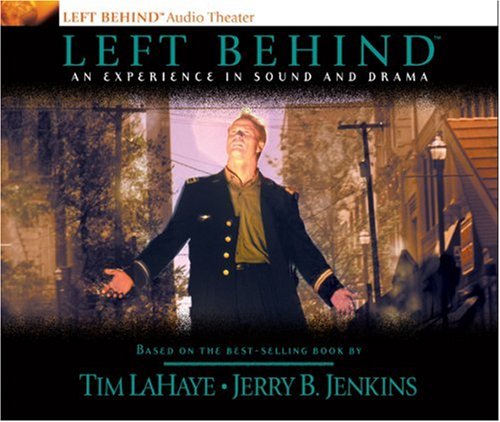

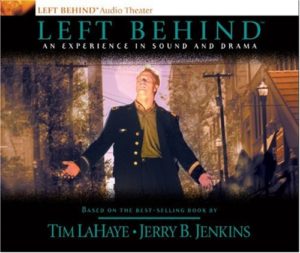





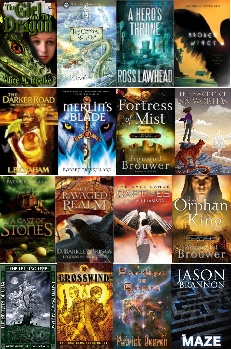

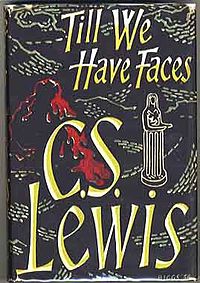






 Why donât we hear of these moments? Not just from the mild âewâ factor, but because most of the time they serve no purpose in the story.
Why donât we hear of these moments? Not just from the mild âewâ factor, but because most of the time they serve no purpose in the story.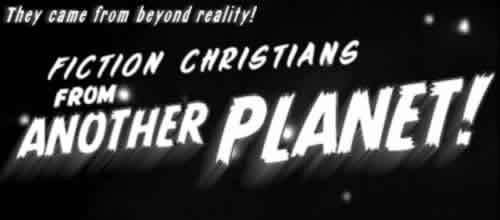


 Much of this could be avoided if people would, as a social-network friend simply suggested, just read the Bible, people. Scripture â especially the books authored by the Apostle Paul â loves the Church and churches yet also reflects and criticizes them honestly. So should our stories. Thatâs why I as a reader will seek and enjoy and positively review Christian novels endorse the beauty, presently flawed but future-perfect, of Christâs Bride. And we can only do this in cooperation with other local-church members, as we enjoy stories together.
Much of this could be avoided if people would, as a social-network friend simply suggested, just read the Bible, people. Scripture â especially the books authored by the Apostle Paul â loves the Church and churches yet also reflects and criticizes them honestly. So should our stories. Thatâs why I as a reader will seek and enjoy and positively review Christian novels endorse the beauty, presently flawed but future-perfect, of Christâs Bride. And we can only do this in cooperation with other local-church members, as we enjoy stories together.